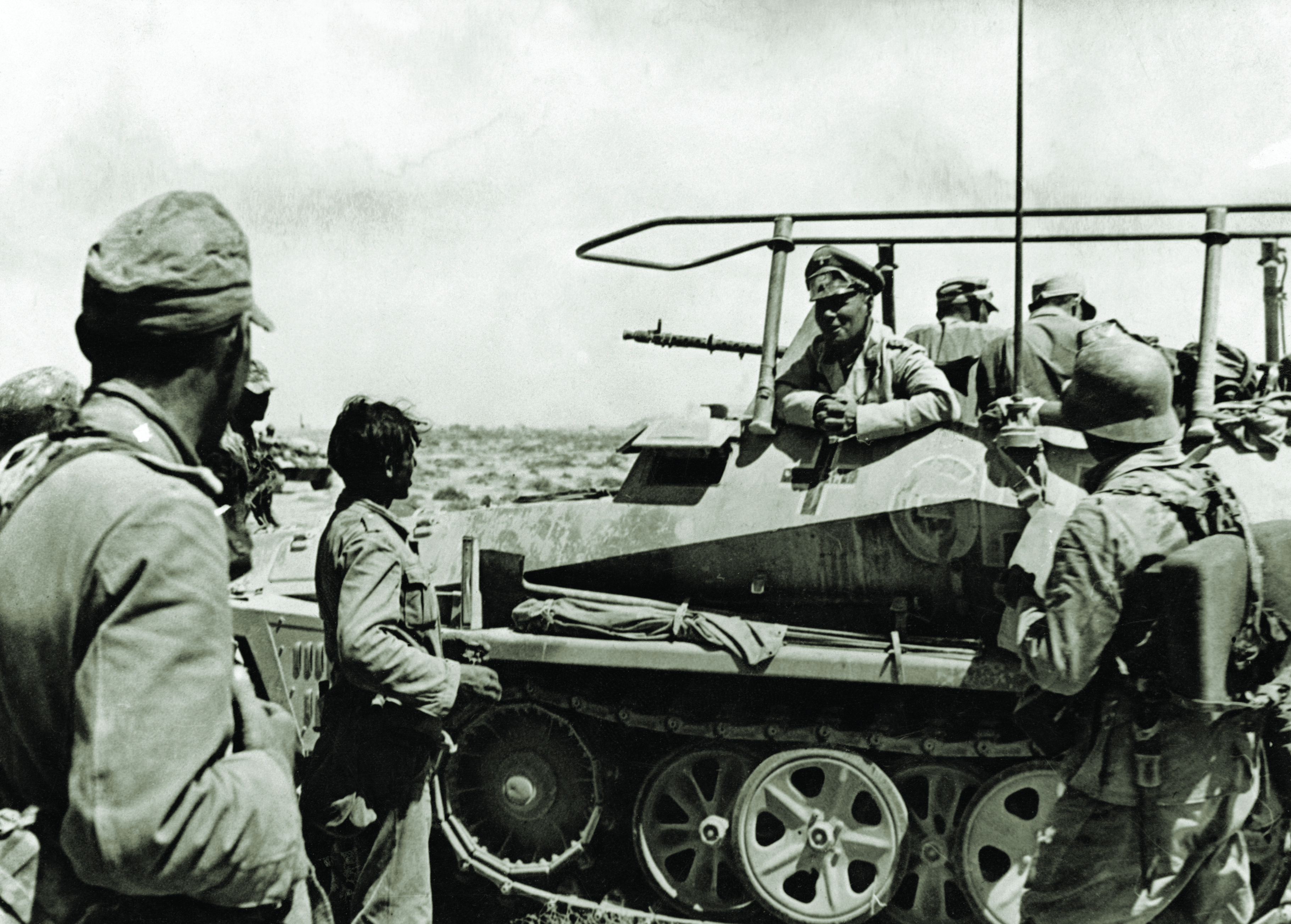The Rommel biography focuses more on the general’s North Africa adventures than on fresh scholarship.
[dropcap]B[/dropcap]iographies of Erwin Rommel abound, and any new addition to the tribe must begin with a justification for its own existence. This might be the precise problem with military historian Samuel W. Mitcham Jr.’s latest book, Desert Fox. It has considerable virtues: smooth prose, clear descriptions of some of World War II’s most complex battles, and a high level of excitement. Mitcham, a scholar of the German war effort, has honed his skills producing works similar to this one for decades; no one should be surprised that Desert Fox is a page-turner.
What you’re learning as you turn those pages may be another matter. Mitcham gives readers a taste of the early Rommel years: his hair-raising adventures as a company commander of mountain troops in World War I; the heroism that earned him the Pour le Mérite medal at World War I’s pivotal Battle of Caporetto in 1917; his time as commander of the 7th Panzer Division in France in 1940. But the general’s thrilling campaigns in the Western Desert form Mitcham’s real raison d’être, spanning well over half the book.
And therein lies a problem, because it is precisely these campaigns that are the best known in what we might call the “Rommel canon.” Buffs can recite this narrative by heart: the helter-skelter to-ing and fro-ing across North Africa—from El Agheila to Tobruk to El Agheila again and on to El Alamein—with Rommel often in the lead tank. He’s an exciting, hard-driven character, one of the most aggressive field commanders of all time, and readers love retracing his adventures. But while the narrative is superficially exciting, very rarely does Mitcham engage with a question that plenty of historians have been asking themselves in years of late: Did any of it really matter? Is a lead tank the place for the commander of an entire field army—in this case Panzerarmee Afrika? Isn’t Rommel neglecting important administrative issues in the realm of supply, command, and control? Is he completely blameless for the Axis disaster in North Africa?
On a more personal level, Mitcham wants the reader to know that Rommel was a good man. We hear of Rommel’s refusal to massacre prisoners, his rejection of overt anti-Semitism, and how he disobeys Hitler’s particularly senseless orders. All to the good! But isn’t it fair to point out that Rommel could get away with some of these things because he was commanding in a secondary theater, literally separated from Führer HQ by a great sea? It’s difficult to imagine Rommel’s record being quite so spotless had he commanded an army in the Soviet Union, in the heartland of Nazi mass murder. Actually, it’s impossible.
Desert Fox has its strengths, but it doesn’t have much new to tell us about Rommel; the book could have been written 30 years ago. In this case, a skilled writer and an interesting subject have added up to less than the sum of their parts. ✯
This story was originally published in the August 2019 issue of World War II magazine. Subscribe here.





